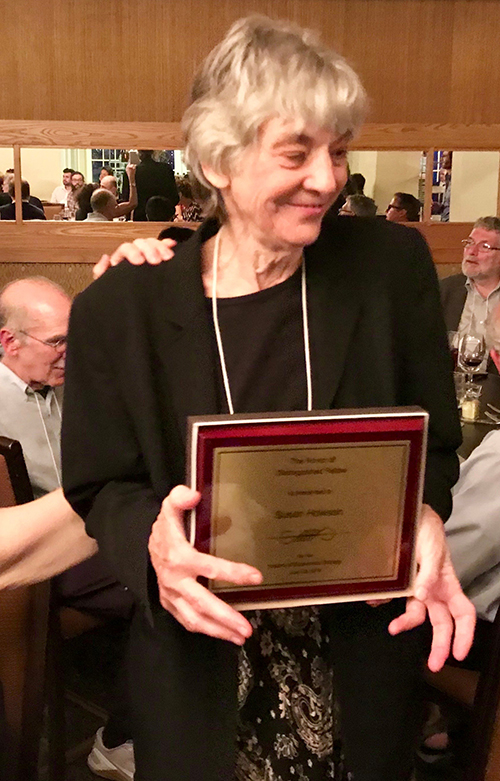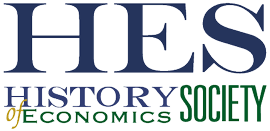Susan Howson, professor emeritus, received the award in recognition of a lifetime of study of the history of economics
August 2019

The holder of a master’s from the LSE and a PhD from Cambridge, Susan Howson joined the department at U of T in 1977 as an assistant professor, becoming a full professor in 1988. She has served as an associate dean in the School of Graduate Studies, as well as a seven-year stint in the Faculty of Arts & Science as Vice Dean Undergraduate Education.
In addition to economic history and the history of economic thought, her research interests also include international economics and macroeconomics. Throughout her long and notable career, Howson has examined the intersection of the history of economic ideas, policy-making and economic history. With this Distinguished Fellow award, she joins an illustrious group whose members also include Craufurd Goodwin, David Laidler, Fredrich A. von Hayek, Lionel Robbins and George Stigler, as well as fellow department professor emeritus Donald E. Moggridge.

| Susan Howson has contributed seminal explorations of interwar and postwar British monetary policy and of the intellectual and practical environments of policy-making, major contributions at the intersection of economic history and the history of economics. Her 1977 book (with Donald Winch) on the British Economic Advisory Council 1930-1939 was one of the first representatives of a rising empirical historiography concerned with bringing into focus the operational contexts within which economic theories, analyses and policy prescriptions have developed and with which they have interacted. Howson’s magisterial 2011 biography of Lionel Robbins, based on extensive archival research, stands as a testament to her deep scholarship. As put by David Laidler in his nomination letter, “she long ago became, and remains, a leading exponent of an approach to the history of economic thought that treats the evolution of economic understanding as a fundamental feature of the historical record that forms a large part of the empirical basis of economics itself.” | ||
